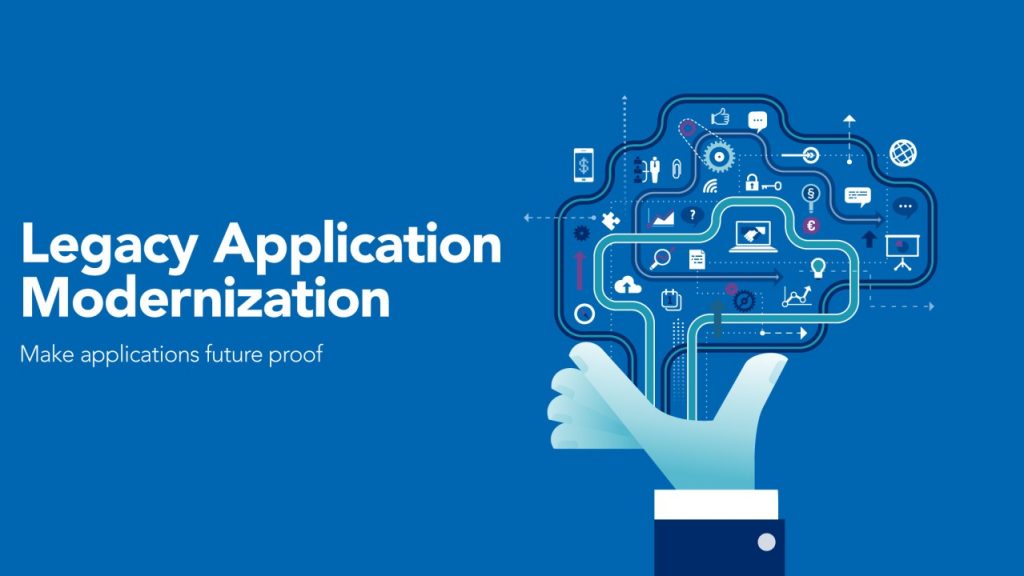
In today’s rapidly evolving digital landscape, businesses face the challenge of keeping their applications up to date to meet the changing needs of their customers and stay ahead of the competition. Application modernization is the process of transforming legacy applications into modern, agile, and scalable solutions, enabling businesses to unlock the power of digital transformation.
- Embracing Scalability and Agility
Legacy applications often struggle to keep up with the demands of a dynamic business environment. Application modernization allows businesses to embrace scalability and agility by leveraging cloud computing, microservices architecture, and containerization.
Moving applications to the cloud enables businesses to scale resources up or down as needed, reducing infrastructure costs and enhancing flexibility. Adopting a microservices architecture allows applications to be broken down into smaller, modular components, making them easier to develop, deploy, and maintain. Containerization further enhances agility by enabling applications to run consistently across different environments, whether on-premises or in the cloud.
- Enhancing User Experience
The user experience is a crucial aspect of digital transformation. Outdated applications with clunky interfaces and slow performance can hinder user satisfaction and impact customer retention. Application modernization allows businesses to enhance the user experience by redesigning user interfaces, optimizing performance, and introducing new features and functionalities.
By modernizing applications, businesses can provide a seamless and intuitive user experience across different devices and platforms. This can lead to increased customer engagement, improved conversion rates, and enhanced brand loyalty.
- Enabling Integration and Collaboration
Legacy applications often operate in isolation, making it challenging to integrate with other systems and collaborate effectively. Application modernization enables businesses to break down data silos and enable seamless integration between applications, systems, and third-party services.
By adopting modern integration techniques such as APIs (Application Programming Interfaces) and service-oriented architectures, businesses can achieve real-time data exchange, streamline workflows, and improve collaboration across departments. This integration not only improves operational efficiency but also enables businesses to leverage the power of data analytics and make informed decisions.
- Strengthening Security and Compliance
Security and compliance are critical considerations for businesses in the digital age. Legacy applications may lack the necessary security measures to protect sensitive data and comply with evolving regulations. Application modernization provides an opportunity to strengthen security and ensure compliance with industry standards.
Modernized applications can incorporate robust security features such as encryption, access controls, and authentication mechanisms. They can also adhere to data privacy regulations, such as the General Data Protection Regulation (GDPR), by implementing data protection measures and providing users with greater control over their personal information.
- Cost Optimization and Future-proofing
Application modernization can lead to significant cost savings in the long run. By migrating applications to the cloud and adopting modern architectures, businesses can reduce infrastructure and maintenance costs associated with legacy systems. Additionally, modernized applications are typically easier to maintain, upgrade, and integrate with new technologies, reducing the overall cost of ownership.
Furthermore, application modernization future-proofs businesses by ensuring their applications are adaptable to emerging technologies and market trends. By embracing modernization, businesses can stay agile and responsive to evolving customer expectations and industry disruptions.
Conclusion
Application modernization is a strategic imperative for businesses seeking to unlock the power of digital transformation. By embracing scalability, enhancing user experience, enabling integration, strengthening security, optimizing costs, and future-proofing their applications, businesses can stay competitive in the digital era.
Successful application modernization requires careful planning, collaboration between IT and business stakeholders, and a comprehensive understanding of the organization’s goals and challenges. With the right strategies and implementation approach, businesses can harness the full potential of modernized applications to drive innovation, improve operational
